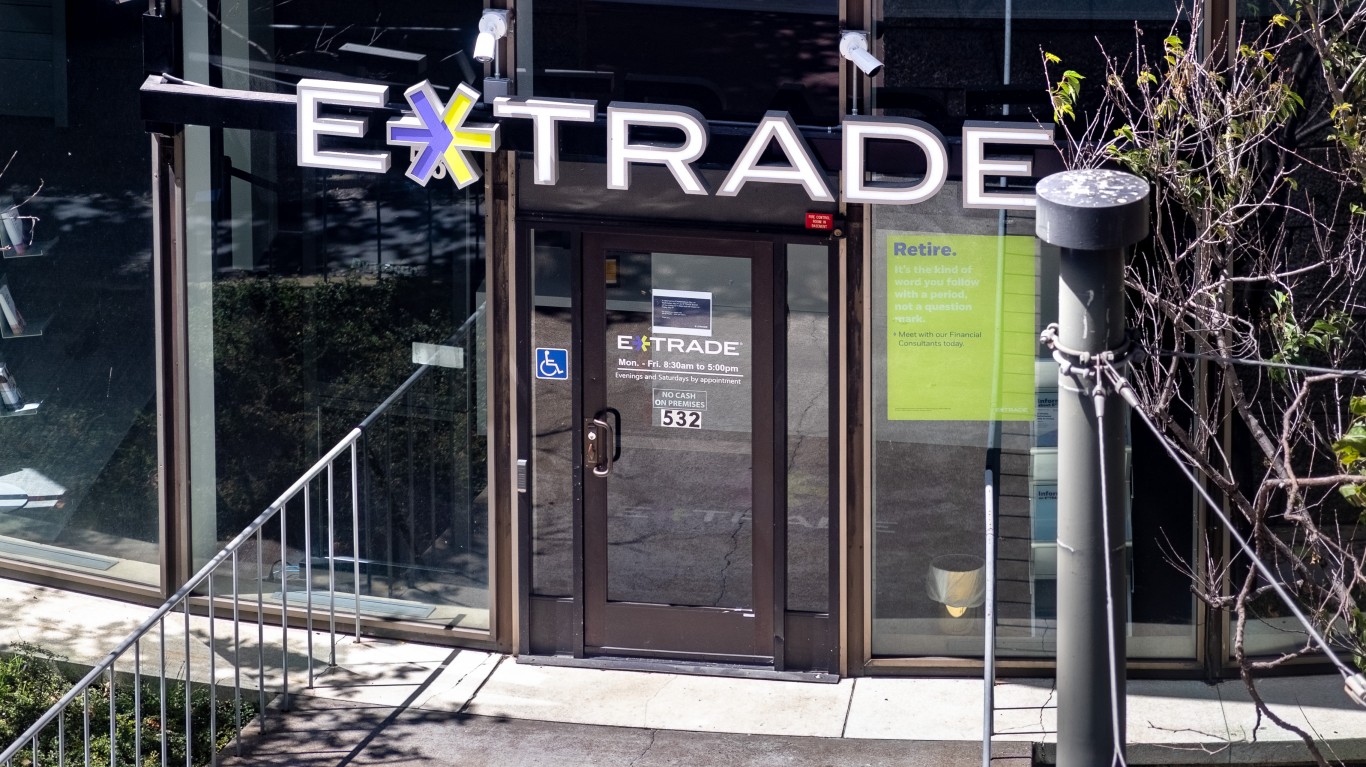

When Warren Buffett buys or sells stocks of public companies on behalf of Berkshire Hathaway Inc. (NYSE: BRK-B), investors often look closely at what’s driving the decisions. Berkshire Hathaway had been the largest shareholder of Wells Fargo & Co. (NYSE: WFC) for a very long time, but Buffett has lost patience. In fact, Buffett has even changed his “favorite bank” away from Wells Fargo, and the real issue looking forward may simply boil down to tax implications.
[in-text-ad]
A recent filing with the U.S. Securities and Exchange Commission (SEC) showed that Berkshire Hathaway owned a total position of 137,557,302 common shares of Wells Fargo. That is a massive 3.3% stake in the company, but it is way down from the June 30 holdings and now represents just a fraction of the peak stake when Buffett was basically considered to be a 10% holder.
A look through the June 30, 2020, positions shows that Buffett’s large bet in Wells Fargo was still acting as an overhang on Berkshire Hathaway, despite being Buffet’s favorite bank in the past. Scandals and asset limitations have continued to take a toll on the bank’s shareholders and on its reputation. The prior stake of 323.212 million shares as of March 30, 2020, was 7.88% of the outstanding shares, but the stake as of June 30 was down to about 237.58 million shares.
Perhaps the largest story is that Buffett has continued making big stock purchases in shares of Bank of America Corp. (NYSE: BAC), rather than his past trends of investing into Wells Fargo. Buffett’s stake was 925 million shares at the end of June, but the latest SEC filing showed a total beneficial ownership of more than 1.03 billion shares. The last filing, as of August 4, 2020, was long after the June 30 cut-off date.
As far as why the changes have been made, Buffett basically has been cutting down his large bet in bank stocks to have a more focused approach on Bank of America. That said, Buffett is considered a master of tax allocations for Berkshire Hathaway, and he has in the past said that tax ramifications of selling some of its key core holdings more or less would equate to a giveaway of assets that otherwise could be used by the company.
What is interesting here is that Buffett also has been trimming his bank stock holdings elsewhere. These were some of the changes seen as of June 30:
- The Goldman Sachs Group Inc. (NYSE: GS) stake was cut by about 84% during the first quarter, and the stake was gone entirely by the end of June.
- JPMorgan Chase & Co. (NYSE: JPM) was down to 22,208,427 shares as of June 30, which appears to be more than 35.5 million shares lower than just the prior quarter.
- The PNC Financial Services Group Inc. (NYSE: PNC) stake was lowered by about 3.8 million shares, cutting its position to 5,350,586 shares.
- Nearly 500,000 U.S. Bancorp (NYSE: USB) shares were sold after the 13-F filing’s cutoff date, compared with the 149,590,275 shares held at the end of the first quarter.
- Visa Inc. (NYSE: V) was listed as 9,987,460 shares at the end of June, down from over 10.5 million shares from in a prior filing.
- Mastercard Inc. (NYSE: MA) was a stake of 4,564,756 shares as of June 30, down from the 4,934,756 shares in a prior filing.
Buffett had been a huge holder of Wells Fargo’s stock over time. The latest reputational damage has proved to be too much for the Oracle of Omaha, and whatever his tax ramifications are, he has decided to move on. It may only be a matter of time before Berkshire Hathaway owns no shares of Wells Fargo at all.
Even in late 2009, Berkshire Hathaway’s stake in Wells Fargo was 313.3 million shares. At the end of 2008, the Berkshire stake was roughly 290.4 million shares. Buffett isn’t just lightening up his stake in Wells Fargo. He’s is punching out and calling it a day.
Knowing what the carrying value of the existing Wells Fargo stake happens to be would be guesswork, because it is impossible to know which lots were sold that were purchased at what price. The 13G/A filing also indicated that some of the more than 30 entities listed in the filing under the Berkshire Hathaway umbrella now hold no shares at all in Wells Fargo.
Essential Tips for Investing: Sponsored
A financial advisor can help you understand the advantages and disadvantages of investment properties. Finding a qualified financial advisor doesn’t have to be hard. SmartAsset’s free tool matches you with up to three financial advisors who serve your area, and you can interview your advisor matches at no cost to decide which one is right for you. If you’re ready to find an advisor who can help you achieve your financial goals, get started now.
Investing in real estate can diversify your portfolio. But expanding your horizons may add additional costs. If you’re an investor looking to minimize expenses, consider checking out online brokerages. They often offer low investment fees, helping you maximize your profit.
Thank you for reading! Have some feedback for us?
Contact the 24/7 Wall St. editorial team.
 24/7 Wall St.
24/7 Wall St.


